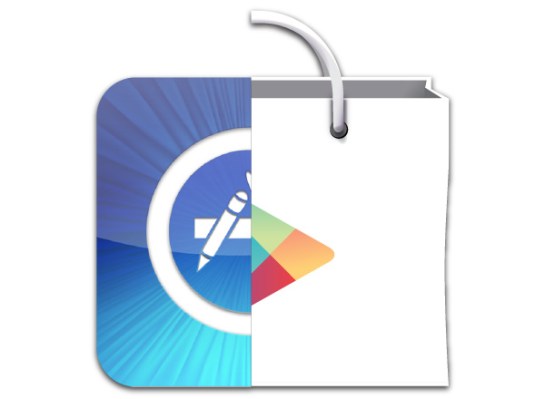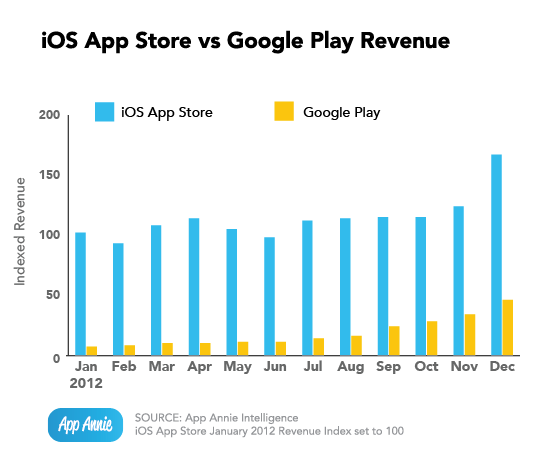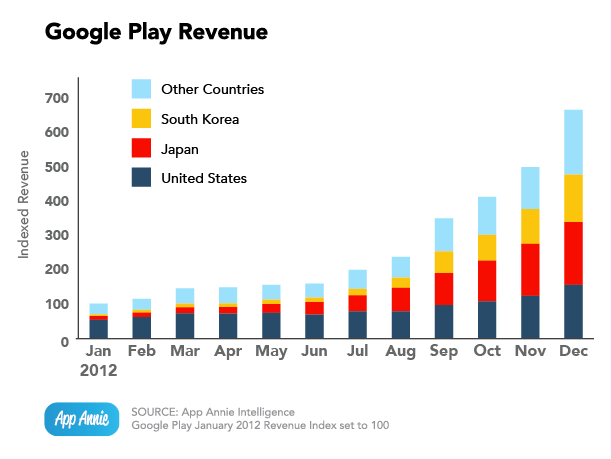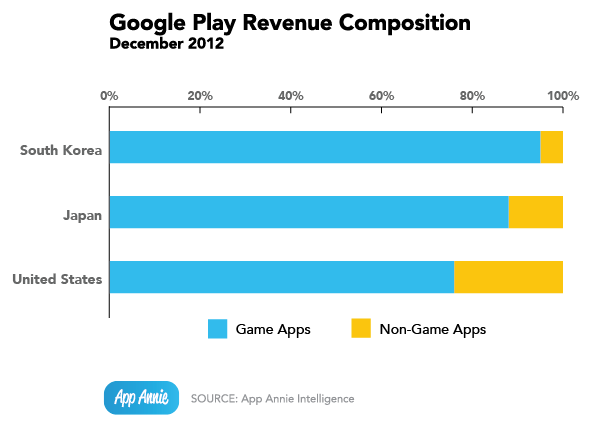Apple still leads in terms of App Store revenue, according to a new report from app store analytics firm App Annie out today, but Google Play’s revenue is accelerating. From Q3 2012 to Q4 2012, Google Play revenue doubled, in a large part due to increases from Japan and South Korea, which, combined, contributed to close to half of Google Play revenue in Q4. Today, Japan leads in Google Play revenue, followed by the U.S., then South Korea.
In the fast-growing mobile industry, it seems that there are almost daily updates on the progress of iOS, Android and other platforms’ gains and losses in market share on the world’s stage. But the broad picture that’s being painted these days is that Android’s portion of global market share is soaring. In the latest report from Strategy Analytics, for example, analysts found that Android’s worldwide market share had climbed from 51 percent at the end of 2011 to 70 percent by the end of 2012.
App Annie’s report on Google Play revenue is but one example of the impact of that growth.
We’ve known that Japan and South Korea are fast growing markets for smartphone adoption – and App Annie previously reported that Japan passed the U.S. as the most lucrative market back in November. (Here’s a deeper look into Japan’s growing app economy, for more on that.) So the numbers from App Annie’s latest index are perhaps more confirmation of that ongoing trend, rather than breaking news to those watching the industry closely.
That being said, it’s still somewhat remarkable to see how well Apple’s App Store performs in terms of revenue, despite Android’s incredible land grab in smartphone market share. According to App Annie’s January 2013 index, Google Play had a higher growth rate, but the iOS App Store gained more in absolute revenue from Q3 to Q4 2012. In December, Apple earned three-and-a-half times more app revenue than Google Play.
China
The holiday season in particular helped boost Apple’s bottom line, with App Store revenue increasing by about one-fifth from Q3 to Q4. From November to December, iOS App Store revenue increased by one-third, setting records, and easily topping the year prior.
China, which Apple CEO Tim Cook recently pegged as soon to be Apple’s most important market, played an important role towards the end of 2012, moving from the 8th highest country based on revenue in the iOS App Store, to the seventh in October, and the sixth as of December. It had not yet moved into the top 5 by year-end, however, which included the U.S., U.K., Japan, Australia, and Canada. During Q3 and Q4, over 60 percent of App Store revenue came from those countries, says App Annie.
Japan & South Korea
The U.S., Japan and South Korea, meanwhile, aren’t just the top-ranking countries in terms of Google Play revenue – they’re also the top three in the percentage of app money spent on games. In December in the U.S., 76 percent of Google Play revenue came from games. In Japan, it was 88 percent. And in South Korea, it was a whopping 95 percent.
Top Publishers
Outside of the obvious – Apple and Google themselves – the top publishers in December 2012 on both iOS and Android represent the increasing globalization of the smartphone industry. Brands like South Korean NHN (makers of LINE, which just crossed 100 million users) rose up the iOS App Store charts in both stores, while Japan’s GungHo Online Entertainment (makers of the fast-growing Puzzle & Dragons) scored as Google Play’s biggest mover, jumping up 6 spots to number 5.
Overall, in December, nine of the ten top publishers by app revenue in Google Play were from Japan or South Korea, with Gameloft the only exception. Nine of the top ten games show the same trend. Meanwhile, other top publishers are those with universal appeal – EA, Disney, Rovio, and Gameloft, for example. (For more details on the various publisher rankings, you can browse the full report here.)




